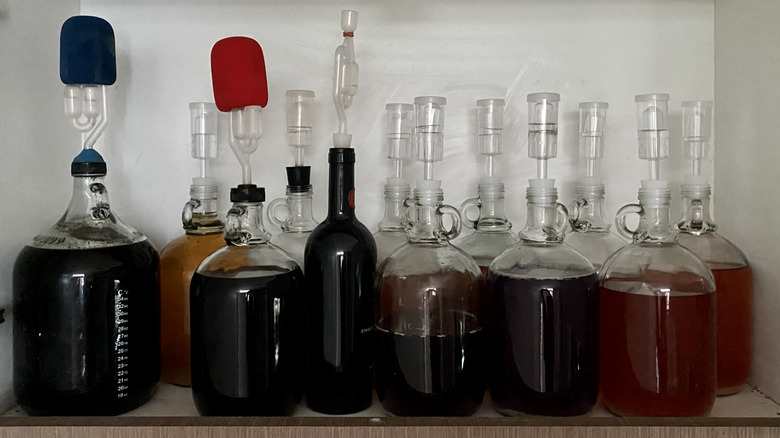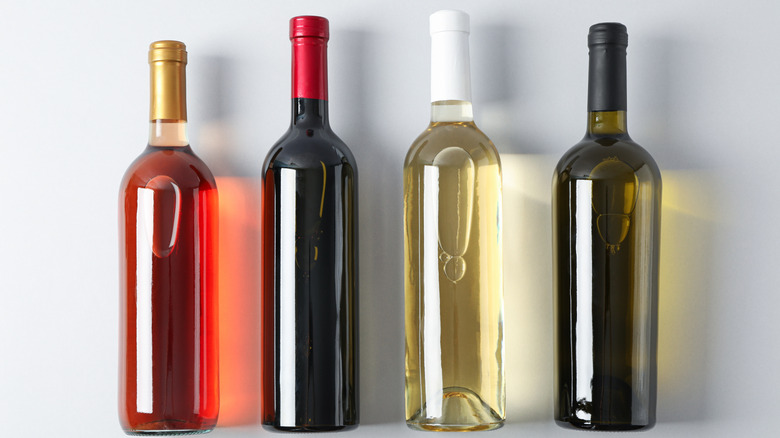You Can Make Wine At Home — But Should You?
In theory, wine isn't a complicated drink: It's fermented grape juice, after all. But the idea of actually making your own wine can still feel intimidating, and we surely don't need to tell you that randomly letting grape juice ferment is not an ideal wine-making strategy. That said, if you've recently had your "wine awakening" (and if you're slightly more scrupulous than letting grape juice sit outside), it's worth making homemade wine.
For advice, we interviewed Ian Bearup, the head winemaker at Millbrook Vineyards & Winery, located in the Hudson River region in New York state. According to Bearup, the satisfaction of tasting wine you made yourself is always worth the effort: "Wine made at home, much like growing your own food, just tastes better because you made it. It is something to be proud of and will get better with every new batch."
Bearup went on to explain that a good home winemaking kit should have all the tools you'll need. These kits typically come with grape juice from a specific wine varietal (merlot, chardonnay, or pinot noir, for example), along with all the chemistry equipment needed to ferment that grape juice (funnels, containers, tubes, airlocks, and corks). After you've got the hang of it, Bearup encourages amateur vintners to get more creative. "Once you have made a few of these with the provided juice, you can begin searching out local grapes," he told us.
Start out with white wine
For your first batch, Bearup suggested making a pinot gris or a sauvignon blanc, both white wines that don't need to be aged for long. A pinot gris has a strong fruity taste (it can be almost spicy, by wine standards), while a sauvignon blanc is more herbal.
Most wines don't need to be aged after you buy them bottled at the store, but a homemade wine should sit for a bit to let its flavor come through. How long you should age any wine is up for debate, and answers vary according to taste; white wines like these are often ready after little more than a month and taste their best within two or three years anyway. A rosé wine also doesn't need to age for very long, and it should taste just fine once you're finished making it. If you are interested in aging your wines, though, an acidic and tannic red is a good choice — the structure from the tannins lends itself to aging, and that bitter flavor becomes smoother as time passes. The acids help maintain the quality of the wine.
Even if the flavor of a wine seems better because you can taste the satisfaction of a finished batch, it's not a guarantee that it will taste great. That depends on a variety of factors, especially practice. And if it doesn't turn out great, you can always help it out by transforming it into mulled wine or a chilled wine cocktail.

